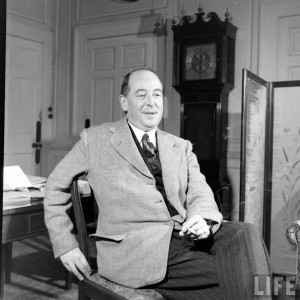 Is it really merciful not to carry out justice? Is the concept of justice too harsh? Should a Christian believe in punishment for crimes?
Is it really merciful not to carry out justice? Is the concept of justice too harsh? Should a Christian believe in punishment for crimes?
C. S. Lewis thought through this issue in an essay he published in 1949 called “The Humanitarian Theory of Punishment.” If we go by feelings, we may think we are being humane in forgiving without real punishment. Lewis disagrees.
The essential act of mercy was to pardon; and pardon in its very essence involves the recognition of guilt and ill-desert in the recipient. If crime is only a disease which needs cure, not sin which deserves punishment, it cannot be pardoned. How can you pardon a man for having a gumboil or a club foot?
Lewis begins with the common-sense acknowledgement that a man is accountable for his actions. No one is accountable for a mere physical deformity; that’s not a moral issue. But there is a real right and wrong for which our choices determine our guilt or innocence. Humanitarians instead wish to treat any “bad” choice as merely a disease for which one is unaccountable. Lewis will not have that.
But the Humanitarian theory want simply to abolish Justice and substitute Mercy for it. This means that you start being “kind” to people before you have considered their rights, and then force upon them supposed kindnesses which no one but you will recognize as kindnesses and which the recipient will feel as abominable cruelties. You have overshot the mark.
 That may seem counterintuitive to some, but what Lewis is saying is that offering “mercy” to people who never have come to grips with the injustice they have committed is no mercy at all; people need to answer for their sinful actions. That’s the only possible path toward redemption. They will only understand genuine mercy if they first feel the hammer of justice. The Law leads to the Gospel.
That may seem counterintuitive to some, but what Lewis is saying is that offering “mercy” to people who never have come to grips with the injustice they have committed is no mercy at all; people need to answer for their sinful actions. That’s the only possible path toward redemption. They will only understand genuine mercy if they first feel the hammer of justice. The Law leads to the Gospel.
Mercy, detached from Justice, grows unmerciful. That is the important paradox. As there are plants which will flourish only in mountain soil, so it appears that Mercy will flower only when it grows in the crannies of the rock of Justice: transplanted to the marshlands of mere Humanitarianism, it becomes a man-eating weed, all the more dangerous because it is still called by the same name as the mountain variety.
Humanitarian mercy is a fake mercy, and dangerous because it tries to pass for the real thing. For mercy to have its full impact, justice must come first.
